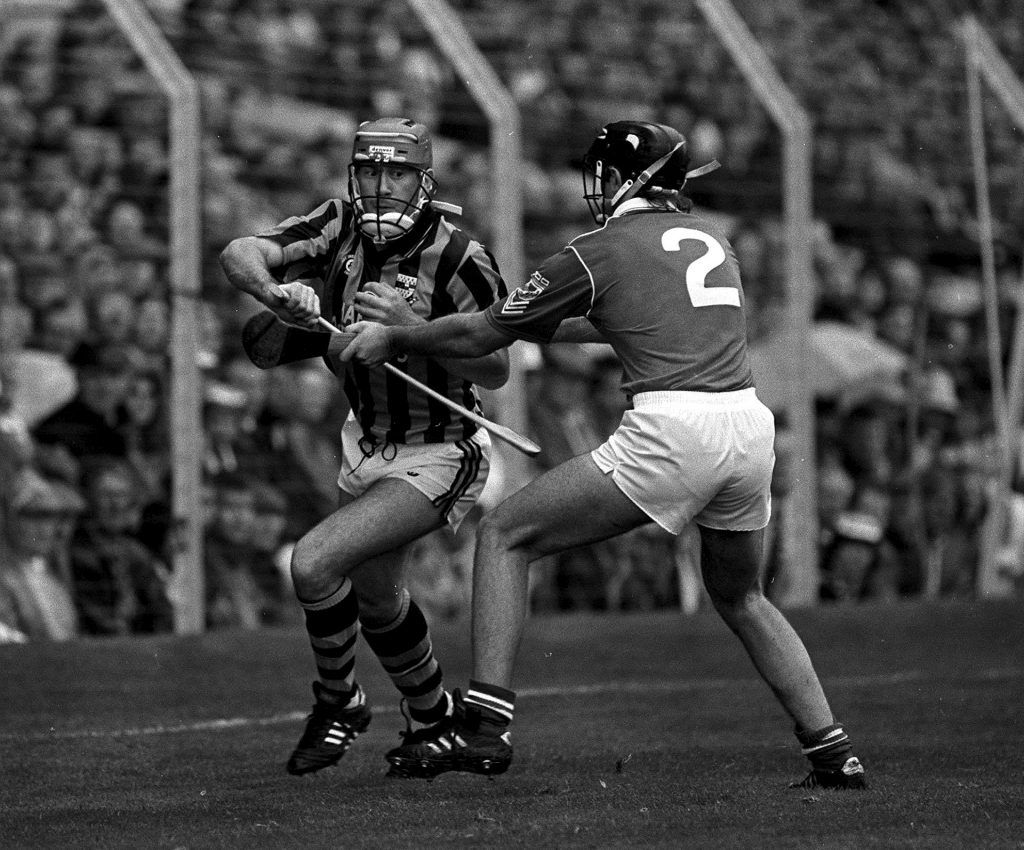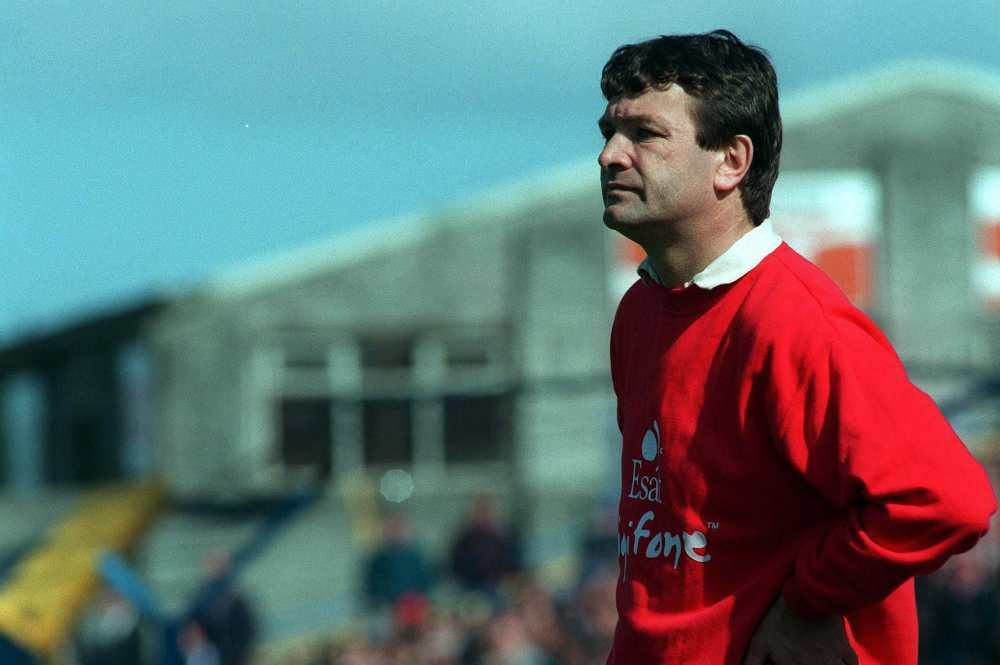

Share
11th August 2023
05:05pm BST


"But If I'd been told my career was to be a corner back, I probably would have retired when I was 20."By 20, he had played in an All-Ireland football final too. Also at corner back, this time chasing Joe Brolly's tail. By 28, he actually had retired. By that stage, he had been granted the freedom of the half back line and while a number of other factors led to his decision to call it quits, the sense of restriction he felt in the back-line in general, also played its part. "I wanted to play the ball and If I was going to beat somebody, I was going to beat them fair and square. "If I had to resort to pulling jerseys, I didn't want to play the game. That just wasn't my style. I couldn't look somebody in the face and shake their hand if I'd been dragging off them for the hour. "My philosophy was go out, try get in front and beat your marker that way." "I remember playing a club game against St Finbarr's and Ger Cunningham was in goal for them. "There was no way he would puck a ball on top of me. I was frustrated that evening because I had no control over the game or how I performed because the ball just never came my way. No matter what I did or tried to do, Ger just pucked it away from where I was..." "I wanted to be a ball player. I wanted to be getting the ball." https://twitter.com/TheGAAHour/status/1273629620768735239 28 and in the stands. Brian Corcoran was actually content there high in the Hogan on All-Ireland final day 2003 but by that evening, after attending the Cork banquet to offer his commiserations to his former teammates, something clicked inside. In 2004, he made the return. "There was no guarantee I was going to make the panel so the goal was to get back on the panel. Donal Ó Grady rang me again and asked me if I'd come back and I told him I would but I would only come back if he'd consider me as a forward - obviously there were no guarantees but he agreed to it! "I wanted to play up in the forward line because I wasn't at the mercy of whether the opposition were keping the ball away from me or not..." "Setanta Ó h'Ailpín was one of the reasons why I wanted to go back because he was such an exciting player and he was bringing a buzz. So I was disappointed when I heard he wasn't going to be around (AFL) and while himself and Alan Browne leaving did open up a spot, I was disappointed to see them go." 2004 ended in a second All-Ireland medal and a third All-Star - this time in the full forward line. Cork and Corcoran would make it two All-Irelands in a row in 2005, before he pulled the curtain on a magnificent career in 2006 aged 33. In the fascinating programme, another Cork legend Jimmy Barry Murphy joined on the line and he summed up the totemic influence the Érin's Own club man had on Rebel hurling. [caption id="attachment_212337" align="alignnone" width="1000"]
 Jimmy Barry managed the Cork hurlers from 1995 to 2000 and took over again in 2011.[/caption]
"There's no doubt that they (Cork squad) looked to him as our leader on the field because he was an incredible player. Brian was our leader in many ways. He was a great leader, by example, both on and off the field. His preparation was always meticulous, he had a level of professionalism that I had never seen in a player and that's why he was the player he was.
"The biggest tribute you could pay him is that when he came back, he could change positions and be as effective, it just showed what a great player he was."
Listen to the Brian Corcoran tribute show here.
https://soundcloud.com/sportsjoe-gaa-hour/brian-corcoran-tribute-show-ft-jimmy-barry-murphy
Jimmy Barry managed the Cork hurlers from 1995 to 2000 and took over again in 2011.[/caption]
"There's no doubt that they (Cork squad) looked to him as our leader on the field because he was an incredible player. Brian was our leader in many ways. He was a great leader, by example, both on and off the field. His preparation was always meticulous, he had a level of professionalism that I had never seen in a player and that's why he was the player he was.
"The biggest tribute you could pay him is that when he came back, he could change positions and be as effective, it just showed what a great player he was."
Listen to the Brian Corcoran tribute show here.
https://soundcloud.com/sportsjoe-gaa-hour/brian-corcoran-tribute-show-ft-jimmy-barry-murphyExplore more on these topics: